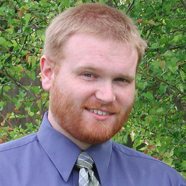We must go where Christ directs us and ‘listen to him’

By: By Shawn Reeves
Second Sunday of Lent, March 16
Genesis 12:1-4a; Psalm 33:4-5,18-19,20,22; 2 Timothy 1:8b-10; Matthew 17:1-9
I am a creature of habit. If I try a new restaurant and like the dish, most likely I’ll return to order the same thing. When I go to work, I generally go through the same morning routine. And when I go to Mass, I typically seek the same seat I’ve always taken.
I imagine many people are the same way. We seek what is comfortable, and we are comforted by what is familiar. Seldom do we stray from this, and often we are filled with reservation and anxiety when forced to break from the patterns of the past.
And so it is that we should stop and marvel at the immense trust it would have taken for Abram to invest himself in such a monumental enterprise as the unexpected relocation of his family and the utter detachment with all he has ever known to which God calls him in our first reading. With nothing but a call to “go forth from the land of your kinsfolk and from your father’s house” and hope in a promise, he travels in humility and obedience to a place never before seen by his eyes and says “goodbye” to everything that was familiar to him. He does not even have the luxury of a description of where he is going and how he is to get there but rests alone on the divine (yet vague) insistence on “a land I will show you.”
SURRENDER IN TRUST
Trusting in God can be a difficult thing for us. I am often guilty of suspecting that God’s blessings will not arrive, that I was mistaken to think God had told me, “I will bless you.” Abram, convicted that God’s promise to bless him and all communities on earth through him was a trustworthy promise, altered the entire course of his life and adopted a new course.
Mobilized by steadfast faith and trust in God’s fidelity to him, Abram gives no evidence that he doubted God’s declarations: “I will bless you . . . so that you will be a blessing.” It would have been far easier for him to simply remain where he was, but the Spirit that compelled the Psalmist to write, “Lord, let your mercy be on us as we place our trust in you,” compelled Abram’s heart forward with the sentiment of these same words, and the inauguration of a covenant would soon be stamped upon salvation history.
In other occasions, though, it may not be the fear that the blessings of God’s promises will never come that haunts us but the fear that they will never be sustained. Like St. Peter, we desire to build a tent around our blessings to make sure they never leave us. In our own “transfiguration” moments of seeing Christ’s glory so clearly, of receiving immense blessings, of feeling that longed for “connection” with God, we often work to clutch tightly to them, lest blessings of the like never befall us again.
But where would St. Peter be had he remained on that mountain with Jesus forever? There would have been no redemptive sacrifice, no glorious resurrection, no Eucharist, no Pentecost, no Church. Christ’s transfiguration would have graced his soul with a peace but an inferior one, absent of so many goods, absent of the total fulfillment of salvation. St. Peter needed to “rise” from that moment and “not be afraid” to leave it. He needed to surrender in trust to wherever Jesus led him and “listen to him.”
Let us, too, follow him wherever he directs us and ever “listen to him,” for “upright is the word of the Lord, and all his works are trustworthy.”
—–
SHAWN REEVES has served as the director of religious education at St. John’s Catholic Newman Center in Champaign since 2001. He and his family are members of St. Malachy’s Parish in Rantoul.





